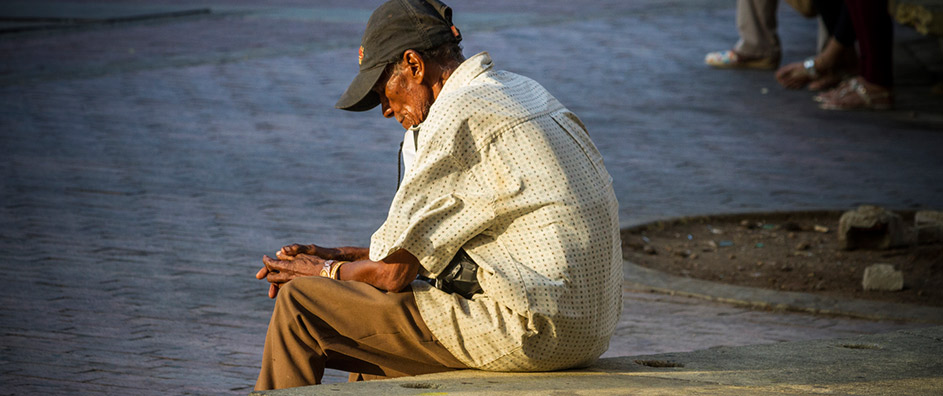The Bahá’í teachings offer a profound understanding of societal issues, particularly the pervasive and multifaceted phenomenon of poverty. Often portrayed solely through the lens of material deprivation, poverty has a more nuanced and intricate ‘face’ that Bahá’ís believe must be examined to foster holistic solutions. This reflection aims to elucidate the Bahá’í perspective on poverty, exploring its spiritual, social, and economic dimensions while advocating for a resilient, compassionate response to this entrenched global challenge.
At its core, the Bahá’í view posits that poverty is not just a lack of financial resources but also a deprivation of dignity and spiritual fulfillment. This perspective encapsulates the metaphor of a flower wilting in shade. Much like a flower thrives in the nourishing warmth of sunlight, so too do human beings flourish in environments rich in rights, opportunities, and social support. The wilting flower symbolizes those trapped in the depths of poverty, deprived of the essential conditions required for their growth. By reimagining poverty through this metaphor, a more empathetic understanding begins to emerge—one that compels us to consider how our actions can restore vitality to those who suffer.
The Bahá’í teachings underscore that to alleviate poverty is not merely to provide financial aid; rather, it is about uplifting the spirit, fostering empowerment, and creating societal structures conducive to the inherent dignity of every individual. Educational opportunities and access to resources must be at the forefront of any meaningful intervention. Central to this idea is the belief that spiritual and material wellbeing are interdependent. When education is accessible to all, it cultivates an enlightened citizenry equipped to navigate complexities and seek equitable solutions.
Indeed, the Bahá’í writings articulate a vision wherein communities can and should work collaboratively to eradicate poverty. In this regard, community building is preferable to mere charity. Charity can easily slip into condescension, inadvertently reinforcing hierarchies of power. By establishing a strong framework of cooperation—where knowledge, skills, and resources circulate freely among all members—communities empower one another to find paths out of poverty that resonate with their unique contexts.
This cooperative and participatory ethos aligns with the Bahá’í emphasis on consultation, collective decision-making, and unity. Rather than imposing external notions of development, the Bahá’í faith calls for local solutions crafted through inclusive dialogue. Such conversations, which honor diverse perspectives, can lead to innovative strategies tailored to mitigate the specific vulnerabilities of each community. The social fabric is strengthened, and the true essence of human capabilities is illuminated.
Furthermore, the Bahá’í perspective emphasizes the moral and ethical obligation to address poverty. The concept of justice is paramount; it necessitates an acknowledgment of systemic inequalities that exacerbate poverty cycles. To cultivate a just society, individuals must engage in acts of justice that address not only the symptoms but also the root causes of poverty. Thus, efforts to dismantle structures of inequality become intrinsic to the fabric of Bahá’í practice. Justice becomes not a lofty ideal but a living, breathing force that shapes how communities interact and support one another.
Transitioning from the moral imperative to the operational aspect, we must examine how sustainability plays a critical role in Bahá’í teachings on poverty. The idea of sustainability transcends environmental considerations; it encompasses economic, social, and spiritual dimensions. In addressing poverty, sustainable solutions are those that endure over time and do not merely provide temporary relief but facilitate long-term transformations. This approach advocates for the empowerment of local economies and the fostering of fair trade practices, ensuring that resources flow back into the communities that nurture them.
As we reflect on the unique appeal of Bahá’í teachings concerning poverty, it becomes evident that the spirituality interwoven throughout this discourse is crucial. At a fundamental level, the expression of compassion toward those in poverty invokes a universal truth: every human being is of inestimable worth. This intrinsic worth transcends socio-economic boundaries and calls upon each individual to act with profound respect and empathy. By viewing poverty through the lens of shared humanity, a moral imperative arises, driving action rooted in love and unity.
Innovative frameworks that emerge from this spiritual viewpoint can reinvent our strategies for combating poverty. For instance, integrative models that encompass microfinance, education, and community-led initiatives offer new pathways for alleviating poverty sustainably. These multidimensional strategies reflect a growing understanding that people existing at the margins of society possess unique insights into the challenges they face. Their lived experiences offer invaluable wisdom that can reshape theoretical discussions into actionable models leading to successful outcomes.
Ultimately, the Bahá’í teachings challenge us to confront poverty in a manner that acknowledges its complexities and infuses our approaches with compassion, unity, and justice. Poverty’s true face, as presented through these teachings, encourages us to see beyond the veil of material deprivation and engage with the underlying spiritual and social dimensions. By fostering collaborative frameworks, engaging in just actions, and embodying compassion, individuals and communities can navigate the intricacies of poverty with grace, ultimately contributing to a more just and thriving world for all.
This holistic engagement can make a significant difference, sparking a transformative shift toward widespread empowerment and opportunities for all individuals, irrespective of their socio-economic position. In this vision, the face of poverty is not an end-point but a starting point—a call to action for every Bahá’í, indeed every individual, to participate in the cultivation of a brighter, more inclusive future.
